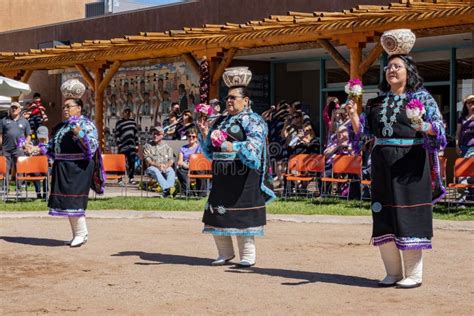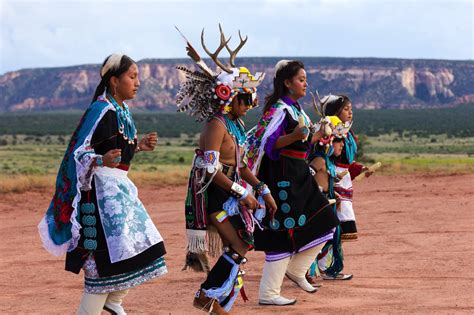Zuni Indian Tribe Facts: History, Culture, and Traditions
Readers, have you ever wondered about the rich history and vibrant culture of the Zuni people? Their unique traditions and enduring legacy have captivated the imaginations of many for centuries. Their journey through time is a testament to resilience, adaptability, and the enduring power of cultural identity.
I’ve delved deep into the world of the Zuni Indian Tribe, analyzing their history, exploring their cultural practices, and unearthing the stories behind their traditions. This journey has allowed me to understand the rich tapestry of their heritage and share it with you.
The Historical Journey of the Zuni People
The Zuni people, known as the “A:shiwi” in their own language, boast a history that stretches back for centuries. Their ancestral land, located in the western part of present-day New Mexico, has been their home for generations. Archaeologists have unearthed evidence suggesting that the Zuni have inhabited this region for at least 1,000 years, with some estimates placing their presence here as far back as 3,000 years.
Their history is marked by resilience, adaptability, and a deep connection to their ancestral homeland. They have weathered the storms of time, adapting to changing environments and forging relationships with neighboring tribes. Their journey has been shaped by trade, conflict, and the enduring strength of their cultural identity.
Early History and Origins
The origins of the Zuni people are shrouded in the mists of time, but their oral traditions reveal a fascinating tapestry of creation stories and ancestral journeys. They believe they were created by the “Great Spirit” and have always lived on this land, a connection that has shaped their worldview and cultural practices.
Their early history is marked by the development of their unique cultural identity and the creation of their intricate social structure. They were skilled farmers, artisans, and traders, crafting exquisite pottery, weaving intricate textiles, and engaging in trade with neighboring tribes.
Contact with European Colonizers
The arrival of European colonizers in the 16th century marked a significant turning point in Zuni history. The Spanish, seeking to expand their empire and convert the indigenous population to Christianity, encountered the Zuni people. This initial encounter, marked by both curiosity and conflict, set the stage for a complex relationship that would shape the course of Zuni history for centuries to come.
The Zuni, known for their resistance and strength, defended their land and traditions. They adapted to the changing landscape, maintaining their cultural identity while navigating the challenges posed by European colonialism. The Zuni people, despite facing immense pressure, successfully resisted forced assimilation and maintained their unique traditions.
Resilience and Adaptation
Throughout their history, the Zuni people have demonstrated remarkable resilience and adaptability. They have faced challenges, from climate change to disease, and have emerged stronger and more resilient. Their ability to maintain their cultural identity despite external pressures is a testament to their strength and determination.
The Zuni people have consistently adapted to changing circumstances, while maintaining their cultural core. From their traditional farming practices to their intricate religious ceremonies, they have preserved their heritage through generations. Their history serves as a reminder of the importance of cultural continuity and the strength of human spirit.

The culture of the Zuni people is a vibrant tapestry woven from traditions passed down through generations. Their unique beliefs, practices, and artistic expressions are a testament to their enduring connection to their ancestral homeland and their unwavering dedication to their cultural heritage.
Religion and Spirituality
Zuni religion is deeply intertwined with their spirituality and their connection to the natural world. Their belief system centers around the concept of “Awonawilona,” the Great Spirit, who created the universe and all living beings. They believe in a multitude of supernatural beings, including kachinas, spirits who represent various natural elements and aspects of the spiritual world.
Zuni ceremonies are a profound expression of their faith and their reverence for the natural world. These ceremonies, often filled with intricate dances, songs, and costumes, are a testament to their connection to their ancestors and their belief in the interconnectedness of all things.
Art and Craftsmanship
The artistry of the Zuni people is renowned for its intricate detail and beauty. Their traditional crafts, including pottery, weaving, and jewelry, are a testament to their skills and their connection to their ancestral heritage. Their pottery, often adorned with intricate designs and symbols, is a cherished art form that reflects their reverence for the natural world.
Their weaving, characterized by vibrant colors and intricate patterns, reflects their connection to their land and their deep understanding of the natural world. They use traditional materials such as wool and cotton, dyeing them with natural pigments extracted from plants and minerals.
Social Structure and Values
The Zuni people adhere to a communal social structure, placing a high value on family, community, and tradition. Their society is based on a system of clans, each with its own unique history and responsibilities. The elders play a vital role in Zuni society, passing down their knowledge and traditions to younger generations.
The Zuni believe in the importance of balance and harmony, both in their relationship with the natural world and within their community. They strive to maintain a balanced relationship with their environment and to live in harmony with each other.

The Zuni people have preserved their traditions and cultural identity through generations. Their traditions, passed down through stories, songs, dances, and rituals, are a testament to their enduring connection to their ancestral heritage and their unwavering commitment to their cultural legacy.
Ceremonies and Rituals
Zuni ceremonies and rituals are a vital part of their cultural life, serving to connect them to their ancestors, to their spiritual beliefs, and to the cycles of nature. These ceremonies, often held throughout the year, are filled with intricate dances, songs, costumes, and rituals that celebrate their heritage and the interconnectedness of all things.
The most famous Zuni ceremony is the Shalako, a nine-day celebration held in the fall. The Shalako is a complex ritual that honors the kachina spirits and symbolizes the cycle of life, death, and rebirth. The Shalako is a testament to the Zuni people’s deep spirituality, their reverence for the natural world, and their dedication to preserving their traditions.
Stories and Storytelling
Stories play a crucial role in Zuni culture, serving to pass down knowledge, values, and traditions from generation to generation. These stories, often told by elders, are a rich source of cultural information and spiritual guidance. They provide insights into Zuni cosmology, history, and social values.
Language and Literature
The Zuni language, spoken by over 10,000 people, is a testament to the Zuni’s cultural resilience and their commitment to maintaining their heritage. It is a unique language with its own intricate grammar and rich vocabulary. The Zuni language also has a rich literary tradition, with stories, songs, and poems passed down through generations.
Zuni Indian Tribe Facts: A Table Breakdown
| Fact | Information |
|---|---|
| Location | Western New Mexico, USA |
| Population | Approximately 10,000 |
| Language | Zuni (A:shiwi) |
| Religion | Animistic, with a complex belief system centered around the Great Spirit (Awonawilona) and kachina spirits |
| Culture | Rich and vibrant, based on traditional practices, ceremonies, arts, and crafts |
| Traditions | Include numerous ceremonies, rituals, storytelling, and artistic expressions |
| Notable Features | Shalako ceremony, intricate pottery, weaving, and jewelry |
Frequently Asked Questions about the Zuni Indian Tribe
What is the Zuni language?
The Zuni language, known as “A:shiwi,” is a unique language spoken by the Zuni people. It is a language isolate, meaning it is not closely related to any other known language family. The Zuni language has a rich vocabulary and intricate grammar, reflecting the complex culture and history of the Zuni people.
What is the Shalako ceremony?
The Shalako ceremony is a nine-day celebration held in the fall by the Zuni people. It is a complex ritual that honors the kachina spirits, representing various natural elements and aspects of the spiritual world. The Shalako ceremony is a significant event in Zuni culture, symbolizing the cycle of life, death, and rebirth.
What are some famous Zuni artists?
The Zuni people have a long tradition of artistry, and many Zuni artists have gained international recognition for their work. Some notable Zuni artists include Helen Hardin, a renowned potter and painter known for her powerful and evocative artwork. Another is Juan T. Olivas, a renowned silversmith and jeweler who created intricate and beautiful pieces showcasing traditional Zuni designs.
Conclusion
The Zuni Indian Tribe, with their rich history, vibrant culture, and enduring traditions, offer a fascinating window into the lives of indigenous people. Their journey through time is a testament to resilience, adaptability, and the enduring power of cultural identity. So next time you hear about the Zuni Indian Tribe, remember their rich and captivating story, and appreciate the enduring legacy of their unique culture.
For more information about Native American history and culture, check out our other articles on our website. We hope you find this information enriching and engaging.
The Zuni people, known for their rich history and vibrant culture, are a testament to the resilience and enduring spirit of the indigenous peoples of the American Southwest. Their story, woven into the fabric of the land, is a tapestry of ancient traditions, sacred beliefs, and artistic expressions that continue to inspire and captivate generations. From their ancestral homeland in the Zuni Mountains to their present-day reservation in western New Mexico, the Zuni people have cultivated a unique way of life that is intricately connected to their environment, their spirituality, and their collective identity. Their history stretches back centuries, with archaeological evidence suggesting their presence in the region for over a thousand years. They have endured hardship and oppression, yet their cultural heritage has remained remarkably intact, a testament to their strength and determination.
The Zuni culture is rich with traditions and ceremonies, many of which have remained unchanged for generations. The Zuni people are deeply spiritual, believing in the interconnectedness of all living things and the power of the natural world. Their religious beliefs center around the concept of “the Great Father” (Awonawilona), the creator deity, and the reverence for the Earth and its abundance. Their ceremonies, often elaborate and colorful, are a testament to their devotion to their faith and a means of honoring their ancestors and maintaining their cultural continuity. The Zuni are also renowned for their intricate artistry, particularly their pottery, jewelry, and weaving. These crafts, passed down through generations, are not merely aesthetic expressions but are imbued with symbolism and cultural significance, serving as tangible representations of the Zuni worldview.
As you delve deeper into the world of the Zuni people, you will discover a resilient community that has successfully navigated the complexities of modern life while remaining true to their heritage. Their story is one of perseverance, adaptability, and cultural preservation. It is a story that reminds us of the importance of understanding and respecting the diverse cultures that make up our world. May their vibrant traditions continue to inspire and enrich us all, reminding us of the enduring power of culture and the importance of safeguarding our shared heritage.
Discover the rich history, vibrant culture, and enduring traditions of the Zuni Tribe. Explore their unique beliefs, arts, and connection to the land.